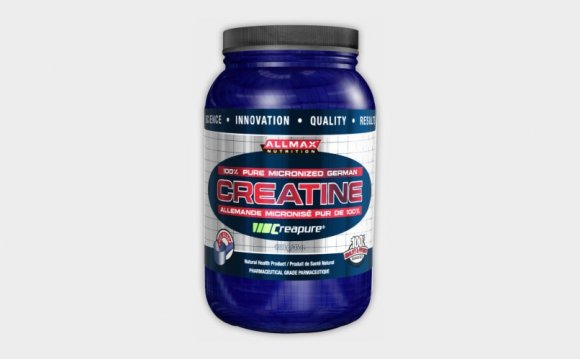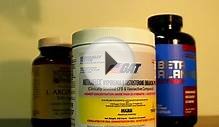
Building new muscle is all about damaging the fibres that you start with. Heavy resistance training is the best way to go about this, so you’ll need to incorporate a weightlifting program into your training schedule.
The traditional approach to gaining muscle is to break training down into four of five days. On each day, you focus on a different body parts, performing 16 sets of four different exercises, each to failure (ie when you can't possibly do one more reptition).
Known as hypertrophy training, this approach is excellent at breaking your muscles - but you have to remain aware of your body's ability to adapt. Fail to vary the stimulus and you'll soon find that your muscles aren't troubled by the workout. To get around this, I personally rotate my training around the traditional 16 set method, , Hypertrophy specific training and 5x5 training. I dedicate four to eight weeks on each training phrase, which is enough time to hit my goals without my body adapting to the exercises.
Nutrition
The food choices you make will be a very important element of your success in gaining muscle.
Firstly, you’ll need to make sure that you have a calorie surplus available to generate new muscle. If you consume only the amount of calories you need to maintain your existing lean muscle mass, you may get stronger but there just won’t be enough spare resources to generate new muscle fibre.
You can work out the amount of calories you need by first establishing your basal metabolic rate using the following formula:
BMR = 66 + (13.8 x weight in kg) + (5 x height in cm) - (6.8 x age in years)
To this base rate, you'll need to add the amount of calories you believe you expended during your workout, plus an extra 200-400 calories. This should give you adequate caloric resources available to create new muscle without the risk of significant fat gain.
Protein intake is also very important. You’ll need to keep your overall intake high, and preferably originating from good quality sources (fresh meat, nuts, whey protein). The recommended protein consumption is 0.7g of protein per pound of bodyweight. This should keep your protein synthesis positive.
Supplementation
Taking supplements can contribute to your efforts to gain muscle, though it is by no means essential. Let’s take a brief look at some of the major players:
Whey Protein. Whey offers an efficient method to consume a very high quality source of protein. Whey is just an alternative to food really, but it does prove a cost effective and convenient option when considering your dietary logistics.
ZMA. People have differing opinions about ZMA. Personally, I find it brings about a marked increase in the quality of my sleep (though crazy dreams are sometimes a side effect). I also feel that it enhances my natural testosterone production. I have more aggression in the gym and my libido is noticeably raised when supplementing with ZMA.
ZMA may help boost hormone profiles but it is certainly not a steroid or anything of that nature, it's merely a combination of zinc magnesium and vitamin B6. I’ve also heard plenty of anecdotal evidence that ZMA doesn't do anything noticeable for a lot of people, so it's probably best treated with a healthy dose of scepticism
INTERESTING VIDEO












